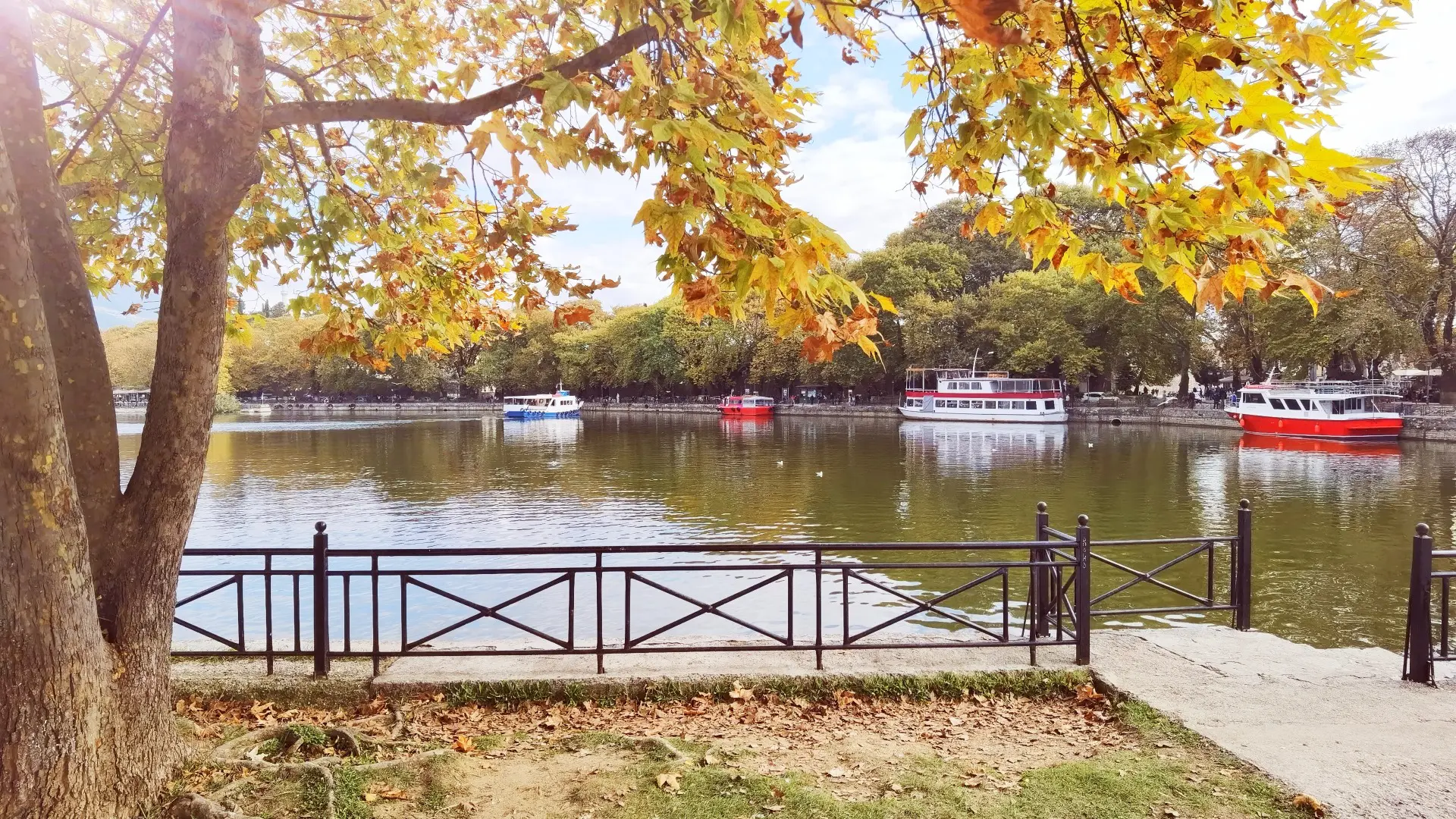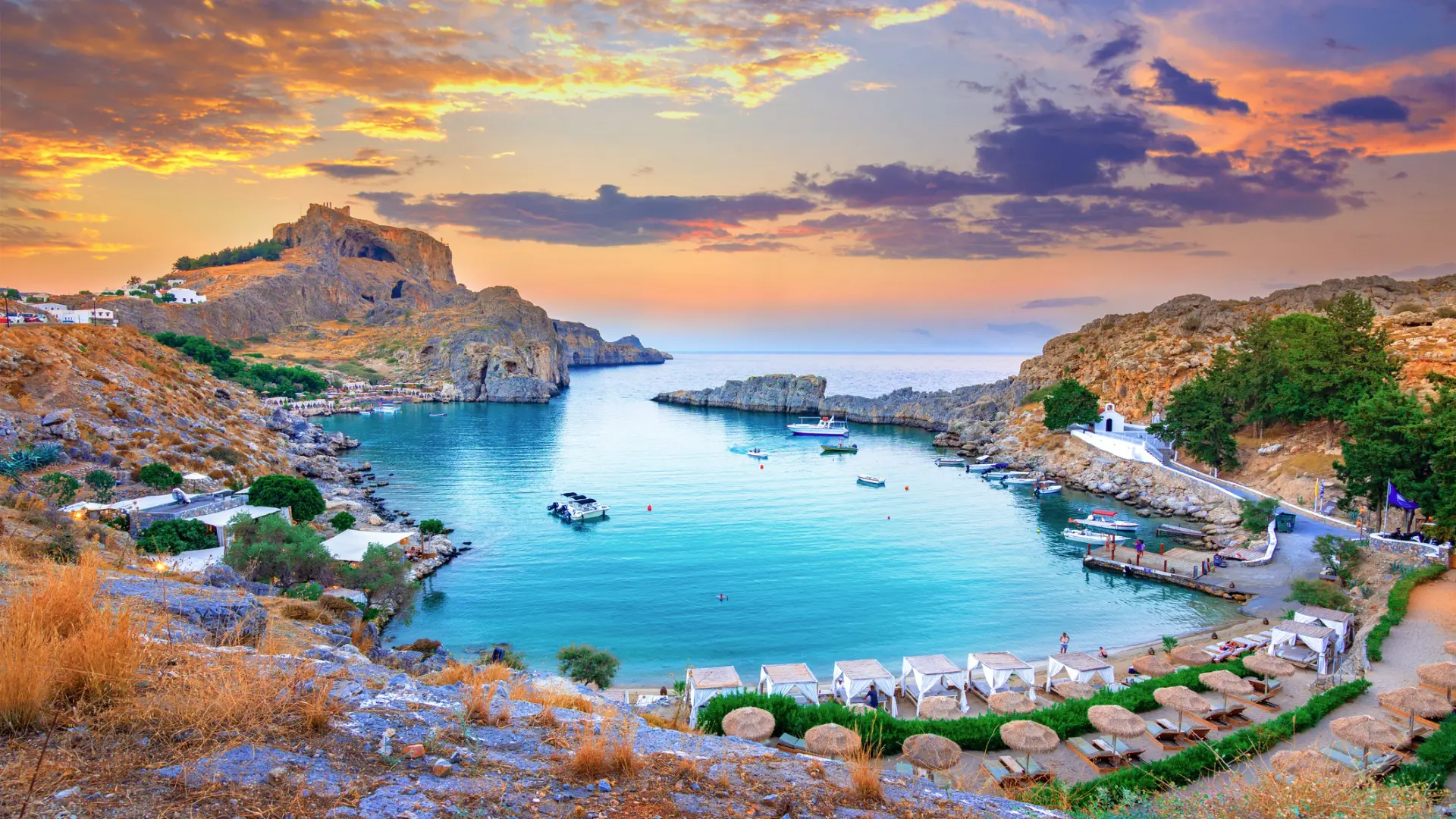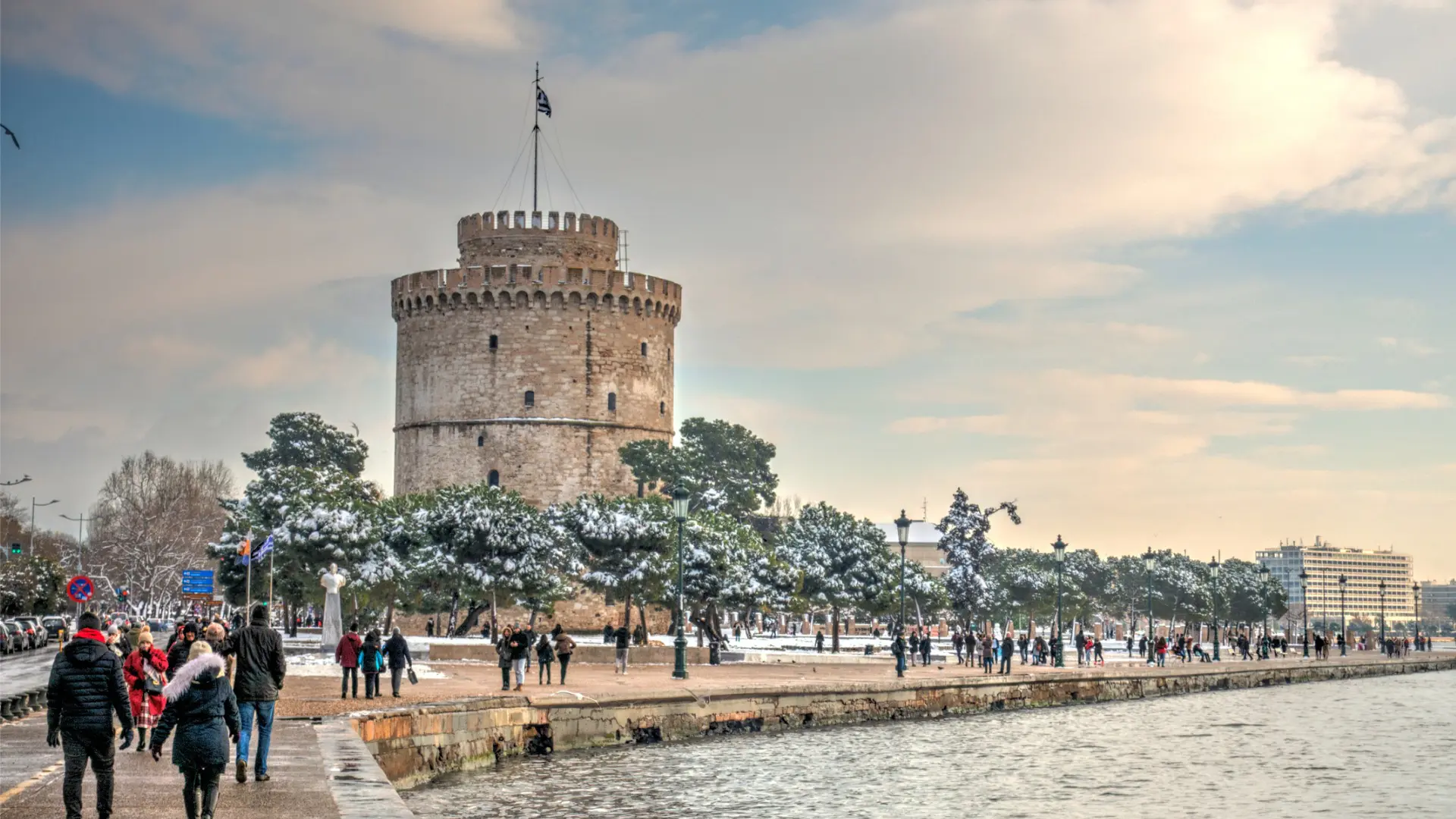If you’re trying to figure out the best time to visit Greece, we’ve got you covered. From weather conditions to events you shouldn’t miss, this season-by-season guide gives you an overview of what it’s like to visit Greece throughout the year.
Jump to a section of this article
An Overview of Weather in Greece
Deciding when to visit Greece – or any other destination for that matter – has a lot to do with the country’s weather and climate. Weather conditions can make or break your travel experience. Therefore, it’s important to know what to expect before planning your trip to Greece.
Probably the best time to visit Greece in terms of weather is either spring or fall. That’s because these seasons see mild temperatures and loads of sunshine. The occasional rain is always a possibility but it’s unlikely that it will ruin your experience.
But let’s have a closer look at the weather in various parts of Greece throughout the year.
Weather in Greece in Spring & Fall
Late spring and early fall are the ideal seasons to visit the Greek Islands to avoid the excessive heat but still enjoy swimming in the deep blue waters of the Aegean Sea or the turquoise waters of the Ionian Sea.
Spring and fall are also the ideal time to visit northern and central Greece, thanks to pleasant temperatures that range between 70°F and 80°F. If you’re planning to do a lot of exploring and sightseeing, the spring months are better than the fall months, to make the most of the longer days.
November is one of the rainiest months in Greece but don’t be surprised if you’re caught in a downpour even in late May. Don’t worry, though, torrential rains in Greece rarely last for too long.

Weather in Greece in Summer
The driest season in Greece, summer brings scorching heat to the islands and major cities. Summer temperatures can climb over 100°F. Sometimes, it’s so hot that you don’t even want to leave your air-conditioned hotel room.
That said, the summer season is the best time to visit Greece if you want to explore the country’s countless mountain villages. From Epirus to Crete, Greece is graced with tall mountains dotted with picturesque towns and villages. With an average temperature of about 80°F, the latter feel like oases in the heart of summer.

Weather in Greece in Winter
With the exception of northern Greece where winters can be quite harsh with frequent snowfalls, especially in the mountainous regions, temperatures in Athens, the Peloponnese, and the islands rarely go below 50°F, allowing you to enjoy outdoor activities even during the winter months.
If you despise the heat, winter might just be the perfect time to enjoy otherwise sun-drenched attractions, such as the Acropolis. If you’re lucky, you might even catch a glimpse of the Parthenon clad in white, although snow in Athens is a rarity.
Winter is Greece’s rainy season, especially in central and southern Greece, where snow is scarce to non-existent.

Apart from the weather though, there’s a lot more to consider when deciding on the best time to visit Greece. So, keep reading!
Spring: The Best Time To Visit Greece For Great Weather & Easter Traditions
We’ve already explained why spring is probably the best time to visit Greece overall: the wonderful weather. Long sunny days, evenings caressed by a cool breeze, and fields of colorful flowers both on the islands and on mainland Greece, create the perfect setting for your Greek vacation.
Yet, there’s one more reason you should consider traveling to Greece in the spring. This lovely season is the best time to visit Greece if you want to delve into the country’s most cherished traditions, those related to the most important religious holiday in Greece: Easter.
Far from being just a religious celebration, though, Easter in Greece represents the rebirth of nature and life re-emerging back to light after the darkness of winter.
For visitors and locals alike, Greek Orthodox Easter offers the unique opportunity to witness some of the best traditions in Greece, all taking place during the Holy Week, especially on Good Friday, Holy Saturday, and Easter Sunday.
From solemn candlelit processions and reenactments of Christ’s Passion on Good Friday to impressive firework displays to celebrate the Resurrection, there’s never a dull moment during the Easter holidays in Greece.
However, keep in mind that big cities, like Athens or the port city of Thessaloniki, don’t have this traditional vibe. To experience Greek Easter at its best, you should opt for one of the Greek Islands, like Paros, Santorini, or Corfu, or lesser-known destinations on the mainland, such as Monemvasia or Meteora.

Summer: The Best Time To Visit Greece For a Beach Vacation & Cultural Events
It’s no secret that Greece is home to some of the most gorgeous islands and beaches in Europe.
So, if your idea of a perfect summer vacation involves long stretches of sandy beaches or secret rocky coves with crystal-clear waters, bijou whitewashed settlements perched atop cliffs or built on the edge of the shore, and mouthwatering Greek dishes based on fresh produce and doused in top-quality olive oil, summer is probably the best time to visit Greece.
Be prepared that you won’t be alone though. The only drawback of visiting Greece during the summer months – apart from the heat, of course – is that summer is the peak season in Greece.
Not only do international travelers from all over the world flock to Greece in the summer, but this season, especially the months of August and July, is also when Greeks themselves head to the beach for their holidays.
Luckily, Greece is a lot more than just its very popular destinations, such as Mykonos and Santorini, though. So, if you’re determined to enjoy that Greek summer vacation you’ve always dreamt of, opt for lesser-known islands, like Milos or Naxos.
Better still, head to seaside destinations on the Greek mainland, such as picturesque Parga or cosmopolitan Costa Navarino.
Even if you’re not a great beach fan though, summer is probably the best time to visit Greece for a wealth of cultural events that range from vibrant music festivals in the Greek capital to the esteemed Athens Epidaurus Festival that features ancient drama performances in historical sites, such as the Ancient Theater of Epidaurus and the Odeon of Herodes Atticus.

Fall: The Best Time To Visit Greece For Harvesting Experiences & Fewer Crowds
Visiting Greece in the fall offers numerous opportunities to taste exquisite seasonal products while taking part in harvesting traditions and events that have been around for centuries.
First of all, there’s the olive harvest. Greece is renowned for its exquisite olives and olive oil and a chance to witness – or even partake – in the olive harvest in a village in Messinia or Crete – two of the finest olive oil producing regions in Greece – is an experience you don’t want to miss.
Similarly, during the grape harvest, you can delve into the secrets of the best Greek wine surrounded by scenery of rare natural beauty at one of many wine-making areas in Greece, like Nemea near Nafplio.
Even if you’re not interested in any harvesting activities though, fall is probably the best time to visit Greece with fewer tourists.
Although early September is no longer considered shoulder season but has recently become part of the high season, late September and early October are the ideal time to enjoy a beachside vacation in Greece.
Sea temperatures are still comfortable for a swim but the islands and other coastal areas don’t attract as many visitors as in the summer.
On the other hand, November is a great time to visit the country’s large cities for a seamless sightseeing experience without queues and higher chances to dine at the best restaurants without having made a reservation way in advance.

Winter: The Best Time To Experience Greece Like a Local
Even though fall is a good time to visit Greece without hordes of tourists, winter is actually the best time to visit Greece if you want to experience it like a local. Foreign tourists are scarce in Greece in winter, while locals don’t travel much either because of work and school commitments.
If you’re planning to visit Greece in winter, bear in mind that the Greek Islands might not be a great idea as many restaurants, bars, and hotels will be closed there during the low season.
However, Athens and other major cities are ideal to visit in the winter. Archaeological sites like the Acropolis or Delphi are at their least busy while wandering around the ancient ruins is a lot more pleasant in cool – or even chilly – weather rather than under the scorching summer sun.
Moreover, visiting Athens and other Greek cities in the winter is your best chance of mingling with locals in a meaningful way. Greeks enjoy dining out or even dancing the night away in the winter and following in their footsteps is the easiest way to make new friends for life.

Travel To Greece Any Time of The Year With JayWay
Although considered a primarily summer destination, the truth is that Greece is more of a year-round destination instead. With mild pleasant weather for the most part of the year and several events taking place across the country, there really is no bad time to visit Greece.
No matter when you choose to visit Greece though, make sure you don’t do it alone. Remember, you have a local friend in Greece. In fact, a whole team of experts who know Greece better than anyone. At JayWay, we have Greece in our hearts and we can’t wait to craft the perfect Greece itinerary just for you.
Whether it’s an off-season Greek Island adventure or the ultimate two-week journey across the best of Greece you’re after, rest assured that JayWay Travel will make your dream trip to this beautiful country come true. All you have to do is pick the best time to visit Greece and we’ll do the rest.

Born and raised in Athens, Maria’s passionate about travel and storytelling, a combination that makes her ideal for her role as our content manager.